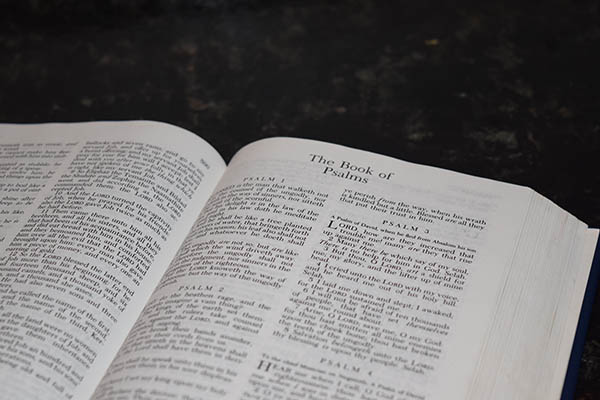Bible Studies for Life By Jim Barnette, Ph.D.
Samford University and Brookwood Baptist Church, Mountain Brook
God’s Living Word Saves
Psalm 119:41; Luke 1:30–35
God promised His salvation would come to us. (Ps. 119:41)
Psalm 119:41–48 has a different tone from the previous section (vv. 33–40) in that verses 41–48 are without anguish and desperation. The psalmist implies here what he makes explicit in the stanza to follow: he is under duress. For this reason, he begins by asking that God’s “steadfast love” and “salvation” come to him. While the psalmist continues to petition the Lord, the dominant theme is assurance based on trust and hope. The occurrence of “steadfast love” in verse 41 is the first of seven (see vv. 64, 76, 88, 124, 149, 159).
God’s very essence is steadfast love and by nature of that love His Word is to be trusted. The Lord’s instruction bears out this unchanging love for humanity and His deliverance is guaranteed by His promises. The sudden shift in mood from the previous stanza is a reminder that Psalm 119 does not tell a single story. Life consists of sudden transitions, along with times of trial and times of victory.
Above all, the quest for following God’s orders has given the psalmist freedom, a fact in contrast to the opponents who belittle him. If this man is secure in his awareness of God’s good will toward him, then human derision cannot touch him. The psalmist may still be taunted (v. 42), but he lives joyfully by trusting the freeing truth.
Salvation comes through Jesus, who is fully man. (Luke 1:30–33)
In contrast to John, who would prepare the people (Luke 1:16–17), Jesus would be called “the Son of the Most High” (v. 32). Jesus would be superior to John, even though John came first. Gabriel assures the “troubled” Mary that she has “found favor with God.” The angel goes on to explain why this grace with God is so significant for Mary. The wording here is virtually identical to the “virgin” passage in Isaiah 7:14 and to the assurance the angel of the Lord gave the fugitive Hagar in Genesis 16:11. The word “virgin” is not mentioned in the allusion to Isaiah; however, Mary’s question in verse 34 clarifies that she is a virgin — a fact that Luke has mentioned in verse 27.
The name “Jesus” (“Joshua”) had been common in Old Testament days and continued to be a popular name through the first century A.D. Furthermore, the Old Testament concepts of “throne,” Davidic line, “reign” and “kingdom” are spoken of as eternal. In 2 Samuel the prophet Nathan was told that through David’s son, God would “establish the throne of His kingdom forever” (2 Sam. 7:13). Similarly the angel announced that Mary’s child would “reign over the house of Jacob forever.” God’s promises were about to be fulfilled in a way that David could not have imagined.
Salvation comes through Jesus, who is fully God. (Luke 1:34–35)
The word for “overshadow” carries the sense of the Lord’s holy, powerful presence, similar to the cloud that covered the tabernacle when the tent was filled with His glory (Ex. 40:35; Num. 11:25). The word is used in all three accounts of the transfiguration to describe the overshadowing of the cloud.
Unlike Zechariah, Mary does not ask for a confirmatory sign (Luke 1:18) but only for enlightenment on how God will accomplish this miracle. Where Zechariah’s question was motivated by unbelief, Mary’s was motivated by belief. Such is one more reason for God finding favor with Mary: her faithfulness. Even when matters did not make sense, Mary the favored one was steady in her trust in the Lord.




Share with others: